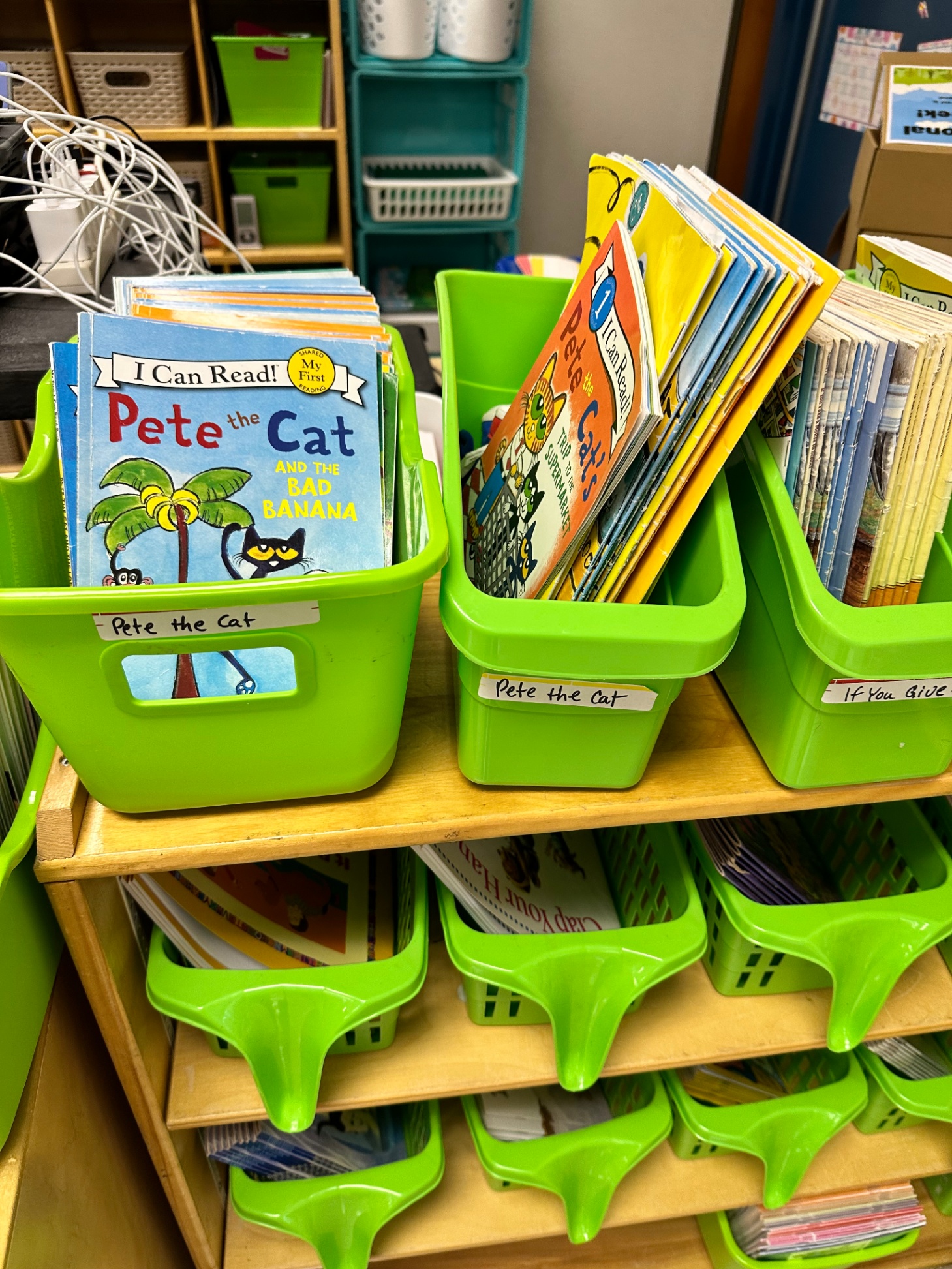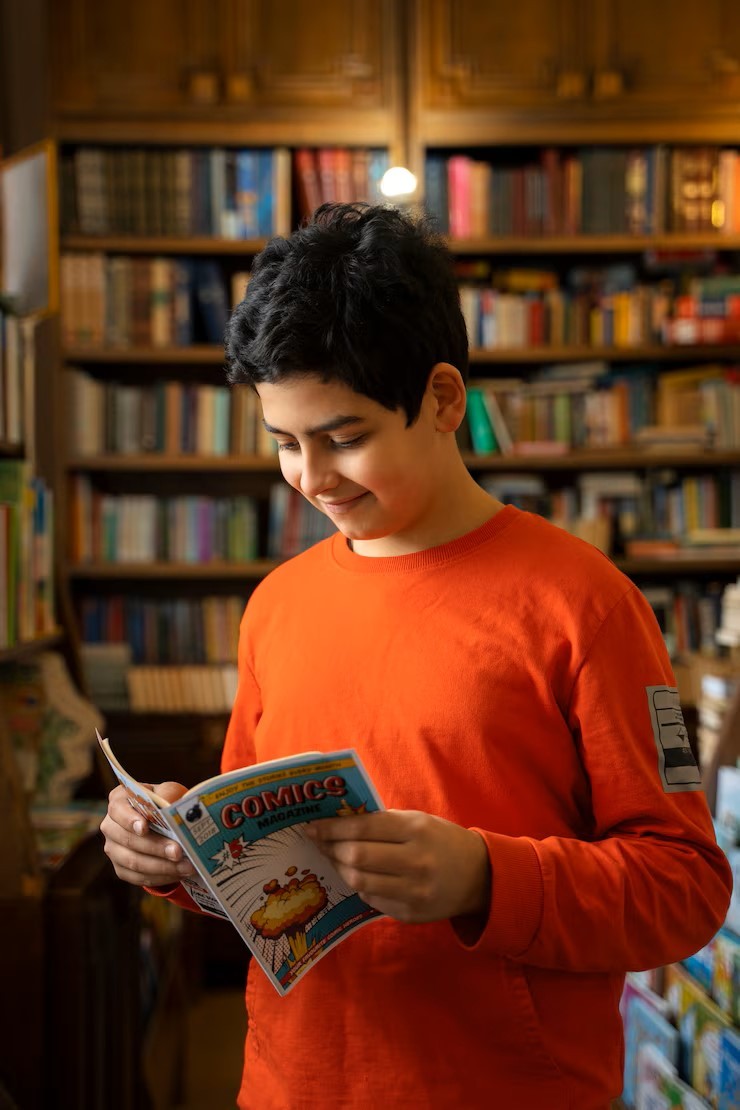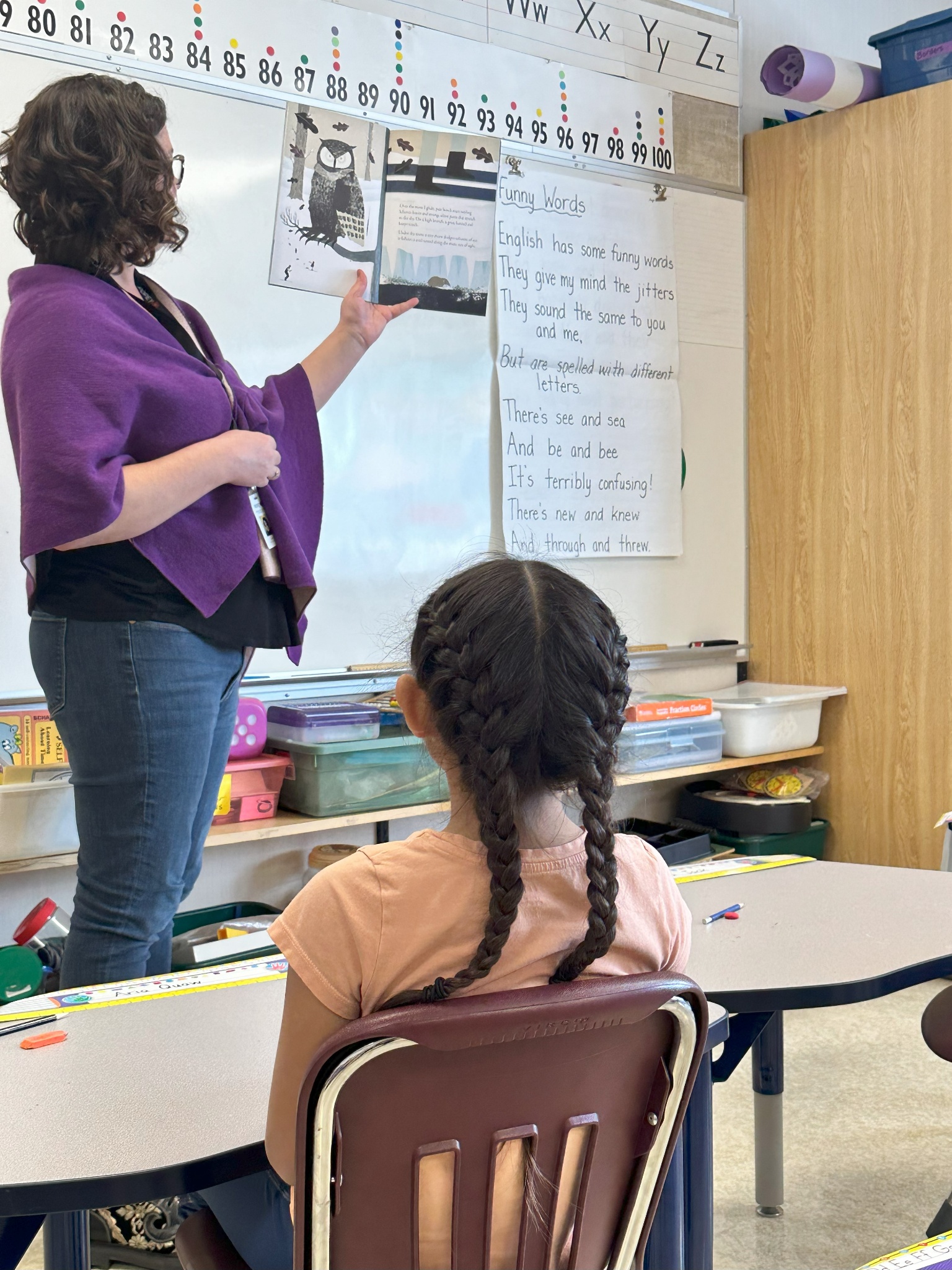Striving for Daily Literacy Routines

Inclusive, culturally responsible, intentional, responsive and joyful learning experiences: | ||
| When students read books by themselves, most effectively with the educator monitoring over time using short one-to-one reading conferences. Ideally students should be able to read these books with 97%+ accuracy without adult help. The conferences are to check in with comprehension, coach with vocabulary development and metacognitive strategy use, provide positive feedback and to strengthen the teacher’s understanding of student interests and application of reading strategies. Student choice of texts that are good fit books for accuracy and interest is important. Learners at the early stages of reading can be taught to explore books of interest by reading the pictures. |   |
 | Small group reading instruction where the teacher supports students to learn to read books that are currently at their instructional reading level. Students are organized in the groups based on showing similar reading behaviours and can all read similar levels of texts. The lessons are strategically tailored focus on student learning needs, like phonics patterns, vocabulary development, and comprehension. In the early stages it may take up to four 20-minute lessons for learners to become fluent with reading and understanding one book. | |
 | Educator reading aloud to the whole class to foster a sense of joy, engagement and wonder while building background knowledge and imagination through the use of a diversity of texts that are rich in language. These books often serve curricular purposes and the words can be beyond the reading abilities of the students themselves. It provides an opportunity to learn about and discuss concepts that are important for learning about the world. A great source for ideas and resources: Maria Walther's website (author of Ramped up Read Alouds) |  |
| An interactive read aloud with the whole class, to achieve and explore specific language arts goals. Big books are helpful for shared reading because students can see the words as they and the teacher interact together to notice things like literary elements (metaphor, simile, rhyme), phonics patterns, author decisions, illustrator techniques, etc. | |
 | Systematic, sequential teaching of and working with phonics elements/patterns that align with developmental stages. It also extends to vocabulary development. Working with words involves reading and spelling as well as using the words in meaningful context. SD91 has created supportive visual instructions for the Words Their Way process. |
|
 | A time when learners get to create texts with more independence than during other times of the day. The cyclical writing process is integral to many independent writing endeavors, but sometimes it is an exploration of writing without always revising and editing. | |
 | Learners attempt to apply the skills or concepts they learned from Modelled and Shared Writing lessons. The educators coach, provide in-the-moment feedback and supports to ensure learners are successful. The feedback can occur in small groups or in short conferences with individuals. | |
 | Learners and teacher work together to co-construct a piece of writing that focuses on a skill or strategy or concept that has typically been modelled previously. The teacher writes in a visible way (board, projected) while learners orally contribute ideas. This interactive stage of instruction can extend over a few short sessions that lead to guided writing. | |
 Begin here when learning a new or undeveloped writing skill or concept. | The teacher composes text in front of learners and uses ‘thinking aloud’ to explicitly show them how the writer’s thinking process works. Choose a particular focus to emphasize elements of writing that assessments have indicated learners need to refine or learn. |





